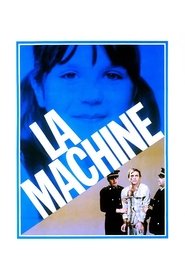detail profile philippe nahoun
Peran Yang Di Mainkan Philippe Nahoun
 Tabataba tells the story of a...
Tabataba tells the story of a...Tabataba 1989
Tabataba tells the story of a small Malagasy village during the independence uprising which took place in 1947 in the south of the country. For several months, part of the Malagasy population revolted against the French colonial army in a bloody struggle. The repression in villages that followed was terrible, leading to fires, arrests and torture. Women, children and the elderly were the indirect victims of the conflict and suffered particularly from famine and illness. One leader of the MDRM Malagasy Party, which campaigns for the independence of the country, arrives in a village. Solo (François Botozandry), the main character, is still too young to fight but he sees his brother and most of the men in his clan join up. His grandmother, Bakanga (Soavelo), knows what will happen, but Solo still hopes his elder brother will return a hero. After months of rumours, he sees instead the French army arrive to crush the rebellion.
 Strung together with a series of...
Strung together with a series of...Fil, Fond, Fosfor 1981
Strung together with a series of separate scenes, this film has only one focus and that is the brief period of adjustment when a young student arrives at school, fixes up his room, writes letters to his girlfriend, meets her many times in his room, and then brings a horse into his room. There seems to be no special point to these 90 minutes of sequences, and even the horse seems to wonder what he is doing there.
 While chaos and the impending doom...
While chaos and the impending doom...An Unusual Girl 1977
While chaos and the impending doom of World War II are just over the horizon, the members of an impoverished French family are occupied with their own concerns. Most notable among them are the romance of the teenaged girl with a young socialist and the boy's friendship with a German boy.

 Pierre Lentier murders an 8yearold in...
Pierre Lentier murders an 8yearold in...